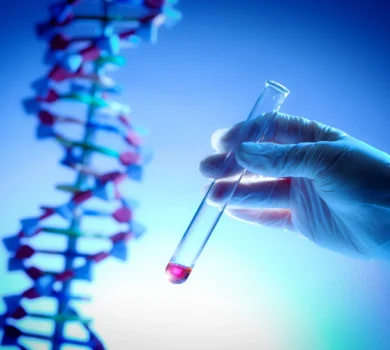Awesome
Top 10 Differences Between Legal and Non-Legal Paternity Tests: What You Need to Know

When it comes to determining biological fatherhood, not all DNA tests are created equal. Understanding the differences between legal and non-legal paternity tests is essential if you want accurate results that serve your specific purpose—whether that’s peace of mind or legal evidence. Here are the top 10 key differences that will help you make an informed decision.
1. Purpose and Use
The biggest difference lies in the purpose. A legal paternity test is designed for official matters—like child custody, immigration, or birth certificate changes—where proof of parentage must be recognized by a court or government agency. In contrast, a non-legal paternity test (often called a “peace of mind” test) is for personal knowledge only and carries no legal standing.
2. Chain of Custody
A legal DNA test follows a strict chain of custody process to ensure that the samples are collected, handled, and tested properly. The participants’ identities must be verified, and the entire procedure is documented. A non-legal test doesn’t follow this protocol; you can collect samples yourself at home, so there’s no official verification.
3. Sample Collection Method
In a legal paternity test, samples are collected by a neutral third party, usually at an accredited lab or clinic, ensuring accuracy and transparency. On the other hand, a non-legal test allows you to use a home DNA collection kit, which you mail to the lab—convenient, but not legally valid.
4. Identification Requirements
Legal testing requires valid ID from all parties involved. This includes a government-issued photo ID and sometimes photographs of the participants during collection. A non-legal paternity test doesn’t require any identification, making it faster but less verifiable.
5. Court Admissibility
Only legal paternity test results can be used in court. If you need evidence for child support, custody disputes, or inheritance cases, the results must come from a court-admissible DNA test performed under accredited supervision. Non-legal test results are for personal use only and won’t be accepted in legal proceedings.
6. DNA Testing Accuracy
Both types of tests typically use the same technology, so the DNA testing accuracy is nearly identical—usually above 99.9%. However, since legal tests involve verified collection procedures, their results are more credible in official contexts.
7. Cost Differences
A legal paternity test cost is generally higher, ranging from $300 to $500 in the U.S., because of the professional collection process and documentation. A non-legal paternity test can cost as little as $100–$200, making it an affordable choice if you only want private confirmation.
8. Turnaround Time
Both tests usually take 2–3 business days once the lab receives the samples. However, legal tests can take slightly longer due to the administrative process and paperwork required for certification.
9. Reporting and Documentation
Legal test results come with an official report signed by a laboratory director, including documentation suitable for legal submission. Non-legal results are typically sent by email or through an online portal, with no official signature or notary validation.
10. Confidentiality and Record-Keeping
Legal results are often stored according to federal guidelines and may be subject to disclosure in court if requested. Non-legal results remain private and confidential between you and the testing company, offering more discretion if that’s your goal.
Which Paternity Test Should You Choose?
If your goal is to resolve a legal issue, such as child custody or child support, you must choose a legal paternity test that meets all chain-of-custody requirements. If you simply want peace of mind, a non-legal paternity test is faster, cheaper, and equally accurate for personal use.
Before purchasing, always verify that the lab is accredited by the AABB (American Association of Blood Banks)—this ensures top-level DNA testing accuracy and reliability.
Conclusion
Choosing between a legal and non-legal paternity test depends on your purpose. Both offer highly accurate results, but only one stands up in court. Understanding these top 10 differences ensures you choose the right DNA test for your needs—saving time, money, and stress in the long run.
Subscribe Our Newsletter
Telephone: 1(866) 522 1142
Prenatal@paternitytest.store
Copyright © Paternitytest.store all rights reserved 2025.




